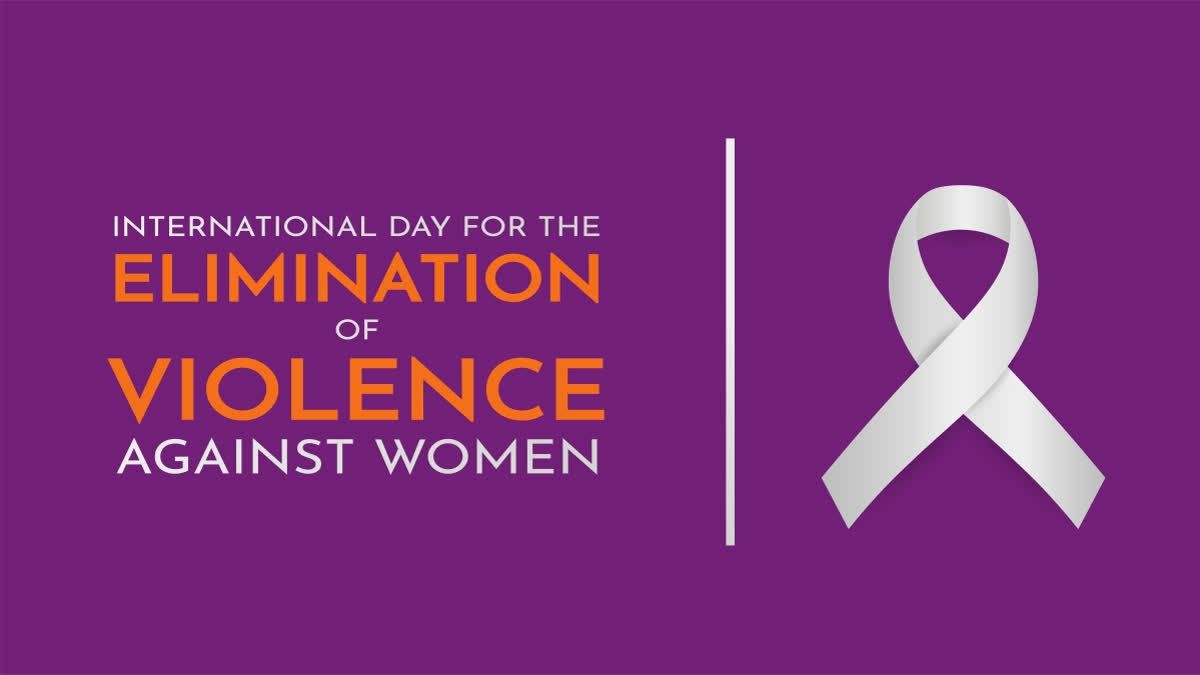Hyderabad:The International Day for the Elimination of Violence against Women, observed on November 25 each year, stands as a global rallying point to address and eradicate one of the most pervasive and deep-rooted human rights violations worldwide. The day holds immense significance, tracing its origins to historical movements and serving as a beacon in the ongoing fight against gender-based violence.
History:The origin of this day can be traced back to the brutal assassination of the Mirabal sisters, political activists in the Dominican Republic, on November 25, 1960. Their murder catalysed the global outcry against gender-based violence. In 1999, the United Nations General Assembly officially designated November 25 as the International Day for the Elimination of Violence against Women, urging governments and organisations worldwide to take action against this pervasive issue.
Significance:The day serves multiple crucial purposes. It raises awareness about the various forms of violence against women, ranging from physical and sexual abuse to psychological trauma and economic exploitation. It underscores the importance of addressing the societal norms and cultural attitudes that give rise to such violence. Moreover, it stands as an important reminder of the countless lives affected by these acts of brutality and the collective responsibility to effect change.
Mission and objectives:The primary mission of this day is to urge action and mobilise efforts toward the prevention and elimination of violence against women. Its objectives span various angles.
Education and awareness:Promoting education to highlight the prevalence and consequences of gender-based violence.
Policy advocacy:Urging governments to enact and enforce laws protecting women's rights and providing necessary support services.
Support services:Ensuring access to shelters, counselling, legal aid, and healthcare for survivors of violence.
Cultural and social change:Challenging societal norms and stereotypes that perpetuate violence against women, fostering a culture of respect and equality.
Empowerment:Empowering women and girls to stand up against violence, supporting their participation in decision-making processes.
Violence against women in India:India deals with complex issues of societal norms, cultural traditions, and systemic challenges that contribute to violence against women. Despite legislative strides such as the Criminal Law (Amendment) Act, of 2013, aimed at addressing gender-based violence, the country still faces significant hurdles in combating this issue.
Cases of gender-based violence, including domestic abuse, sexual assault, dowry-related deaths, and honour killings, exist across various socio-economic strata. The deeply dominated patriarchal mindset keeps alive a culture of victim-blaming, hampering survivors from seeking justice and support.
There is no doubt that grassroots movements, civil society organisations, and individuals are tirelessly working towards change. From initiatives promoting education and awareness to providing safe spaces and legal aid, efforts are underway to combat violence against women in India.
In conclusion, the International Day for the Elimination of Violence against Women embodies a crucial moment to reflect on the progress made and the challenges that persist in ensuring a world free from gender-based violence. It demands collective action, advocacy, and unwavering commitment to upholding the rights and dignity of women worldwide. Each year, this day serves as a poignant reminder that the fight against violence against women is ongoing and necessitates a unified, concerted effort from all sectors of society. This day is not only a commemoration, rather, it is a call to action, a catalyst for change to build a world where every woman and girl can live without fear, where their voices are heard, their rights are protected, and their dignity respected.
